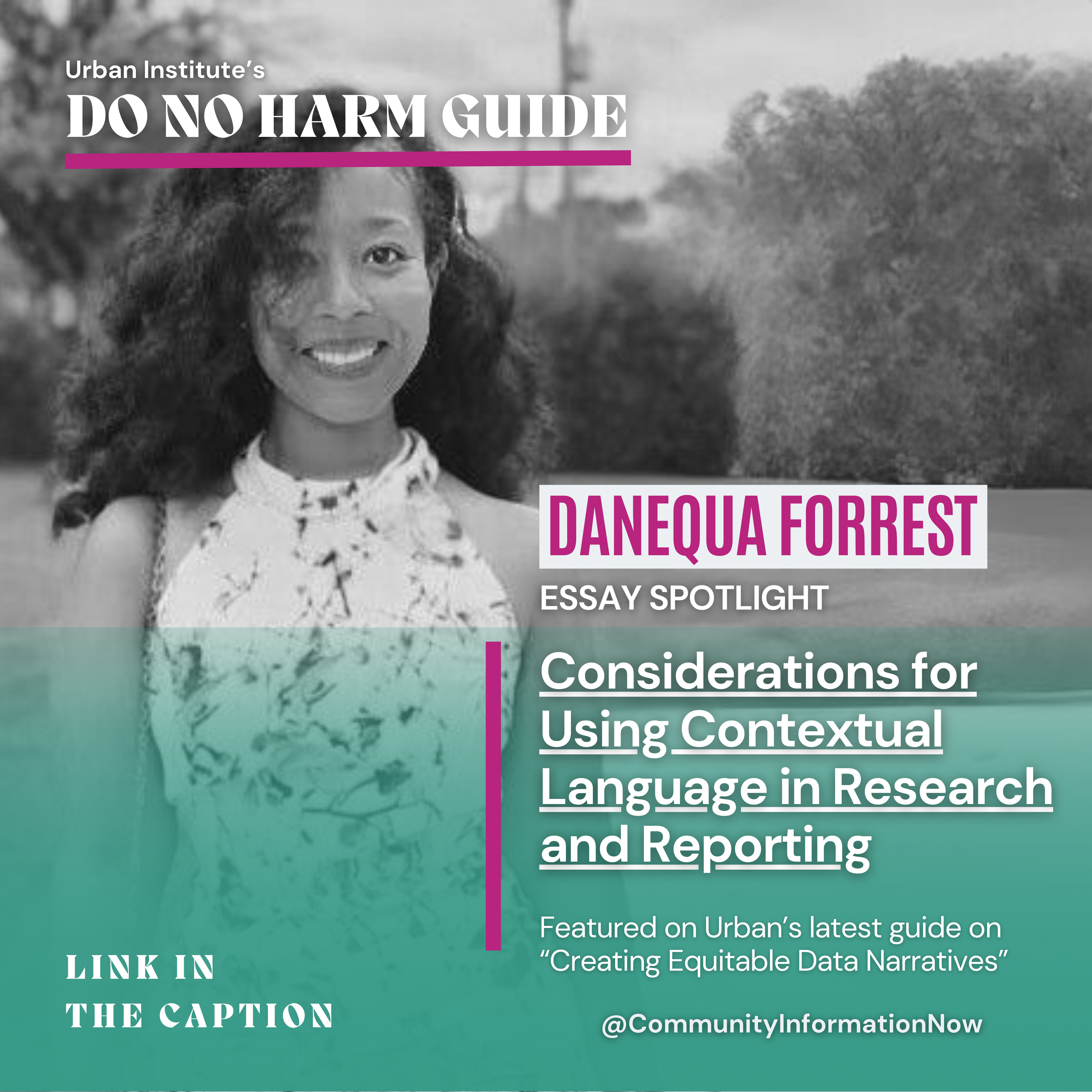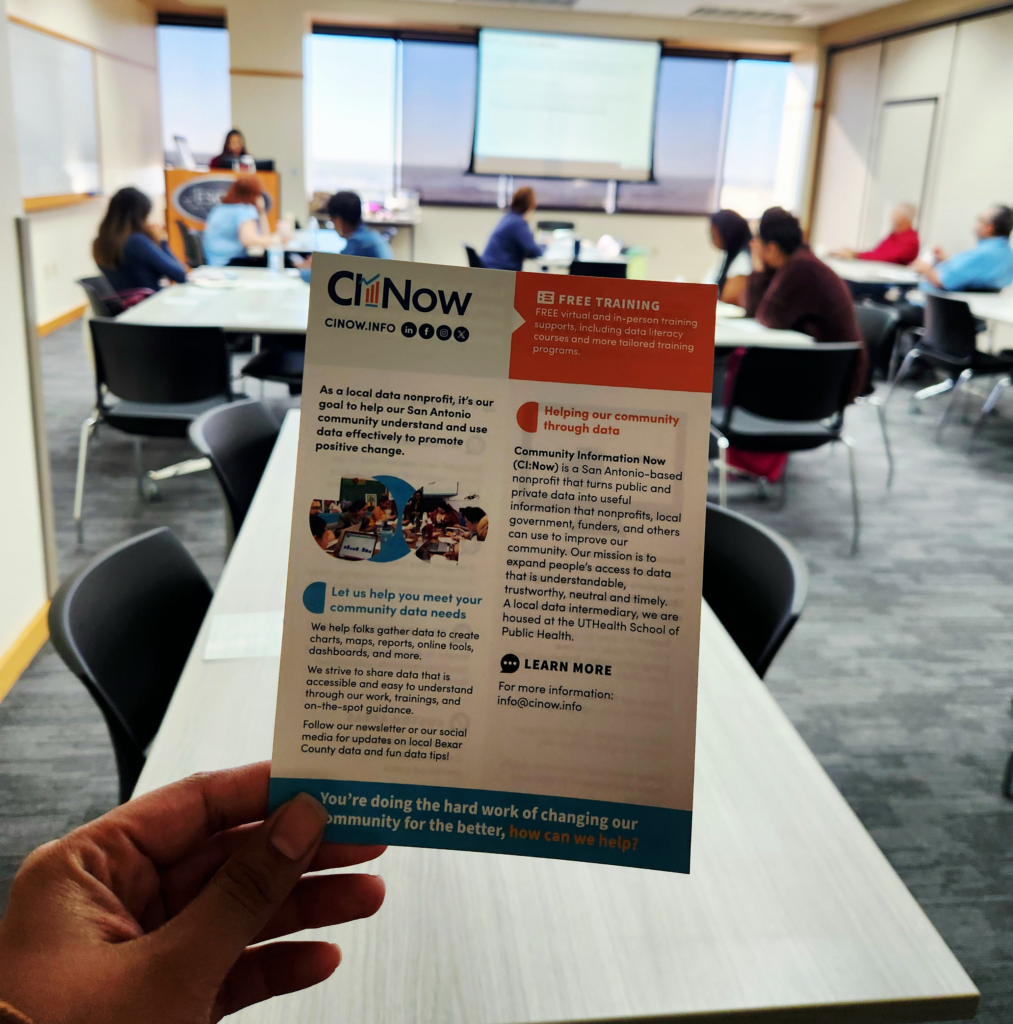One of our research coordinators, Danequa Forrest, was featured in Urban Institute’s third edition of their Do No Harm Guide, a project that aims to, “inform data practitioners about data equity and resetting their framing to prioritize intention and empathy.” This edition focused on “Crafting Equitable Data Narratives”, and Danequa’s article highlighted the importance of being mindful of the social context in data. She discusses the importance of contextual language, how to use it, and why it’s important in research and reporting. Contextual language is imperative for offering a complete and accurate understanding of what the data represents. As Danequa puts it, “Data researchers should not live in fear of being corrected, but in acceptance of imperfection, coupled with a desire to improve.”


